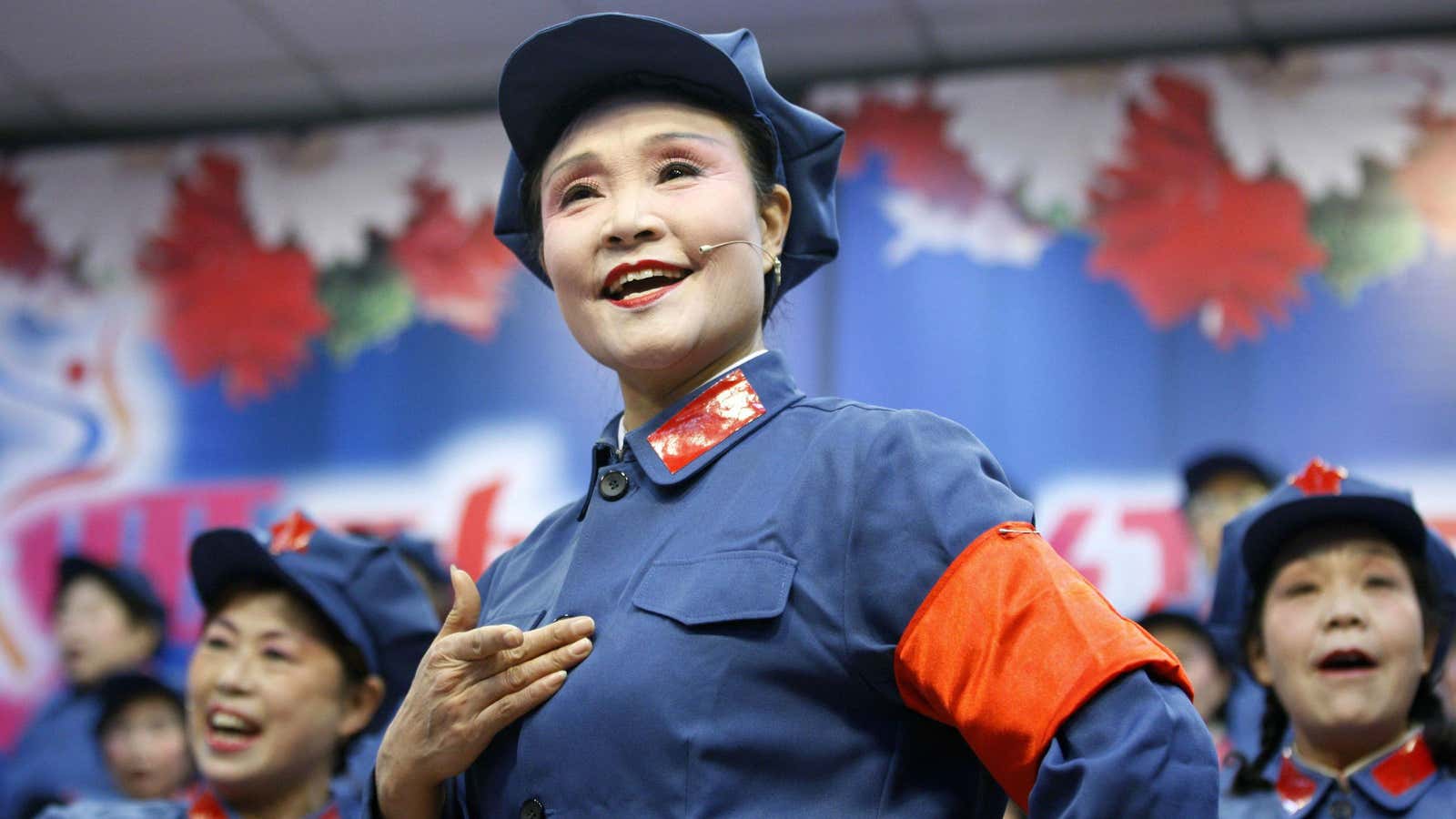The world’s biggest political organization, China’s Communist Party (CCP), wants to become a little more exclusive. For the first time in 24 years, the CCP is overhauling how it vets new entrants, and putting the emphasis back on “socialist core values.”
While the plan is to make the party more selective and less prone to corruption, the curbs may also hasten an already declining relevance of the party in the day-to-day lives of regular Chinese.
Right now, the party’s 85 million members range from farmers and university students to entrepreneurs and movie stars—and of course, all of China’s ruling officials, like current leader Xi Jinping.
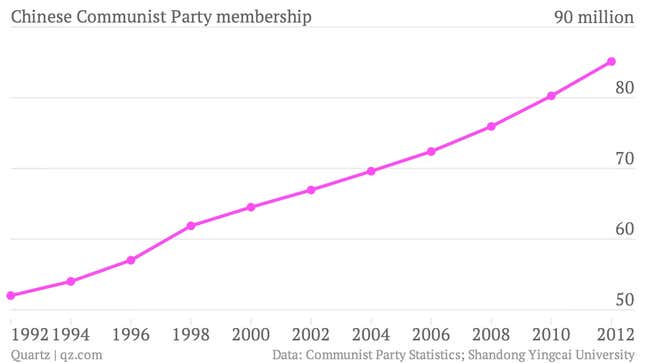
Over the past few decades, the CCP morphed from the revolutionary party of the proletariat (mostly the working class, farmer and soldiers) into a massive business networking club. For university students, membership can help in getting good jobs with the government or state-owned enterprises. For many Chinese over the age of 40, party membership is an important status symbol, one that comes with faster promotions and better business connections.
As party cells began admitting businessmen, entrepreneurs, more ethnic minorities and other previously barred groups, the overall party expanded quickly. Membership in 1950 was only around 5 million in 1950; over the past decade its has grown by at least one million a year to 85 million. Today, it has as many professionals as farmers and workers and almost half of members have a junior college degree or higher.
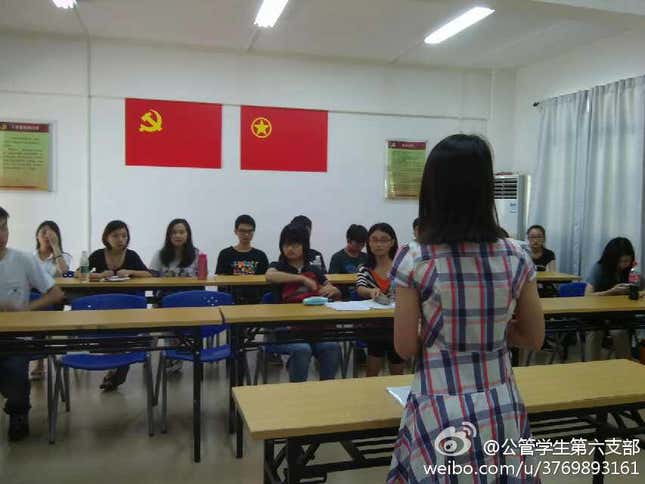
It’s this size, diversity, and prevailing self-interest among party members that seems to concern Xi. According to new rules published by the central office of the party this week, “efforts should be made to limit the size of the Party and to improve its structure and quality,” and allow for more “prudent” and “balanced” growth. Under the new rules, only those of “with correct motivation” should be accepted, and applications must be reviewed by the party officials overseeing a local branch.
There’s some signs that as the party started admitting more members, the cachet associated with membership has dropped. Employment rates for young party and non-party members are about the same, and non-members actually a little better off—about 85% compared to 80% found jobs within two months of graduating university, according to a recent survey of 12 universities by the Chinese Academy of Social Sciences.
Today, local party chapters—in neighborhoods and companies—rarely meet and when they do, many cadres are more interested in trips or other activities than the traditional meetings for studying new guidelines from the central party leadership, according to members of local chapters in Beijing.
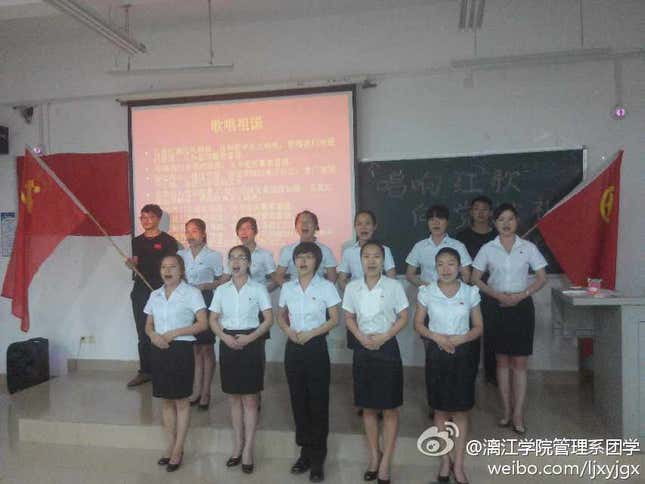
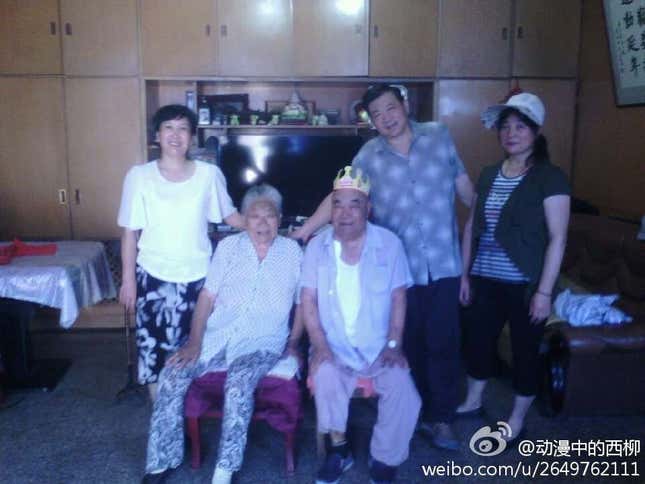
Proposals to downsize the CCP have been made before—one professor last year called for kicking out over half of current party members—in hopes of rooting out corruption. Last year, Xi ordered party cells to hold “self criticism” sessions and this week, another campaign was announced to weed out officials of “undesirable work styles.”
In recent weeks, dozens of former and current executives of state-owned firms and officials have been expelled from the party.
But just downsizing isn’t likely to reign in the bribery and graft that’s so widespread in the party that government corruption consistently ranks as one of the top concerns in public opinion polls, with many citizens complaining that the country’s elites are growing wealthier and leaving the rest of the country behind.
“There is of course no guarantee that…apparently stricter criteria for admitting members, will ensure that future party members will be less corrupt,” Willy Lam, a researcher of elite Chinese politics at the Chinese University of Hong Kong, told Quartz. “Unless Xi changes the political system…corruption basically cannot be changed. It is built into the system since the CCP monopolizes all power.”
Cathy Sizhao Yi contributed additional reporting.
